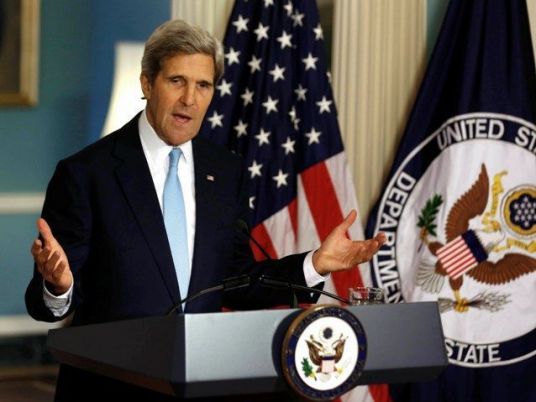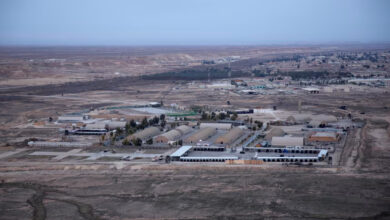
US Secretary of State John Kerry was in Iraqi Kurdistan on Tuesday to urge its leaders not to withdraw from the political process in Baghdad after their forces took control of the northern oil city of Kirkuk.
Peshmerga fighters, the security forces of Iraq's autonomous Kurdish north, seized control of Kirkuk on June 12 after the Iraqi military fled in the face of an onslaught from Sunni militants from the Islamic State in Iraq and the Levant (ISIL).
Kurds have long dreamed of taking Kirkuk, a city with huge oil reserves just outside the autonomous region, which they regard as their historical capital.
If they hold onto Kirkuk, revenues from its major oilfields could far surpass any budget offer from Baghdad, boosting its ambition of succeeding as a fully independent state.
But Kerry, who is on a tour of Middle East countries to discuss the deepening crisis in Iraq, hopes to convince Kurdish leaders to be part of a new government in Baghdad where they can assume senior positions and have a say in the oil wealth.
While in Baghdad on Monday, Kerry said he had been assured by Iraqi Prime Minister Nouri al-Maliki he would meet a 1 July deadline to form a new inclusive government. Washington is pressing Maliki to move quickly in the face of gains by Sunni militants who have advanced toward the capital.
"The secretary’s visit will be very important both to confer with the Kurdish leadership and also encourage them to play a very active role in this government formation process, including choosing a very strong president who can represent both Kurdish interests but also Iraqi interests," said a senior State Department official who briefed reporters.
"If they decide to withdraw from the Baghdad political process it will accelerate a lot of the negative trends," the official said.
The new territory includes vast oil deposits the Kurdish people regard as their birthright and foundation for the prosperity of a future independent homeland.
With full control of Kirkuk, the Kurds could earn more on their own, eliminating the incentive to remain part of a failing Iraq and leaving them in the strongest position ever to secure the city many Kurds consider their spiritual capital.
Still, the Kurds have slowly moved to securing oil deals with Turkey and international companies, moves that Washington regard as illegal because the oil wealth should benefit all Iraqis, not just a few.
"If we are to have a chance … to use this process of forming a new government to reset the political foundation here, the Kurds have to be a critical part of that process, and we think they will be," the senior State Department official said.




